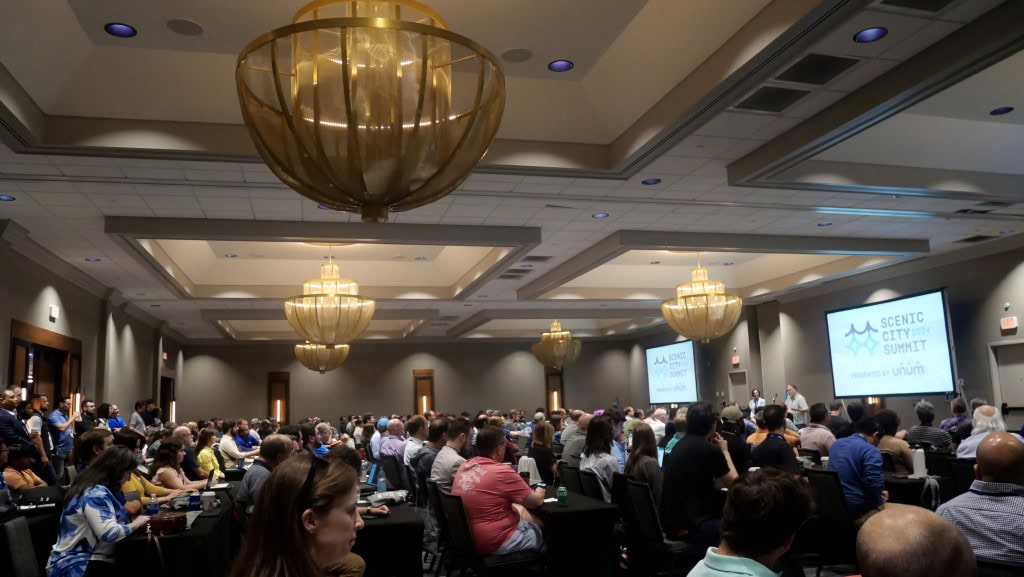A few days back, I blogged an intro to my pre-con on How to Design a Relational Database. You can see that blog here and you can (must?) go see the abstract and register: here.
But who exactly is the target audience? I think there are really four reasonable answers, one answer that I feel says it all:
Beginner Data Architects
If you want to be a data architect, and have at least some SQL skills, you will probably not get so lost as to feel left out the entire day. I start at the beginning, introducing all of the concepts of a database, and we are going to do our work in groups so you will get some experience, if brief, in the database design process. I take this cue from my first Kimball University class on data warehousing, which I used as an inspiration to my first pre-con I did (which was pretty much the same as this one, plus or minus 20% from experience.) I was lost parts of the class since I was new to data warehousing at the time, but there was a nice mix of people in the class from beginner to near-expert, and the experience has paid many dividends throughout the years since, as I have done more and more data warehousing design and implementations along with my more natural relational database designs.
Intermediate Data Architects
While beginners may not have seen some of the stuff we are doing, intermediate data architects have probably done some of this stuff already. When I was at this point in my career, my goal was to make sure I was doing things the right way (sometimes I was, sometimes I wasn’t!). You are often mentored by people who have all sorts of ideas about what is right, coupled with websites, databases that are shipped with products (I am looking at you AdventureWorks!), not to mention you may have taken a class or two in college on the subject. In this class, my goal is to provide practical discussion about database design that can help clarify some of these things you have seen. That along with the ability to ask me questions, as well as discuss possible solutions to the teamwork assignment will hopefully clarify the way to design a database using some patterrns you may not have heard of, or to be honest, that you have heard are a bad idea but may not be.
Since this is only a 7 hour class, we won’t have a ton of time to discuss your specific needs, but if you can fashion your questions in a specific, generic manner, we can discuss some ideas as a class. If you have a design you want me to look at after the class, just send me some requirements and a design and I will be happy to discuss a bit more after the class is over. I want to make sure you get your money’s worth, and I usually learn something new from one or more of the attendees insane problems they have to deal with.
Skilled Data Architects
This is the most difficult group to mention, but here is what I endeavor to do for members of this group: I would enjoy attending this session myself even if I were not the one doing the talking. Worst case: you know everything, get to do some fun database design, and don’t have to work on a Friday.
DBA/Developers Who Don’t Focus on SQL
One group that I think needs a class like this as much as anyone are the people who use relational databases but don’t really focus on them for most of their work. This group tends to either write or support SQL, and need to know why a design should look a given way. “Why are there so many tables? Wouldn’t it be easier to just have one table that held all of the data?” Even if you won’t exactly apply these skills as your primary focus, it is good to understand the fundamentals, and participate in a design session or two. It is the reason I often go to reporting tool and programming sessions at conferences, to make sure I understand the other person’s job that I am affecting.
Everyone (aka the one answer to rule them all)
Finally, let’s be clear about one thing. If you can (or can get your boss to) fork out just shy of $160, I will promise you at least a tiny bit of entertainment, and the chance to meet a new friend or two. Worst case you didn’t have to work on a Friday. Best case, you learn how easy it is to design a great database, start a new career that lets you enjoy every day at the office. Worst case, you help offset the cost of my vacation to Disney World when I am finished with SQL Saturday. Either way, it is pretty much a no lose proposition for us both.
Hopefully I will see several of my blog readers down in Tampa for this event on the 26th of February. I know I am pretty excited about it!





Load comments